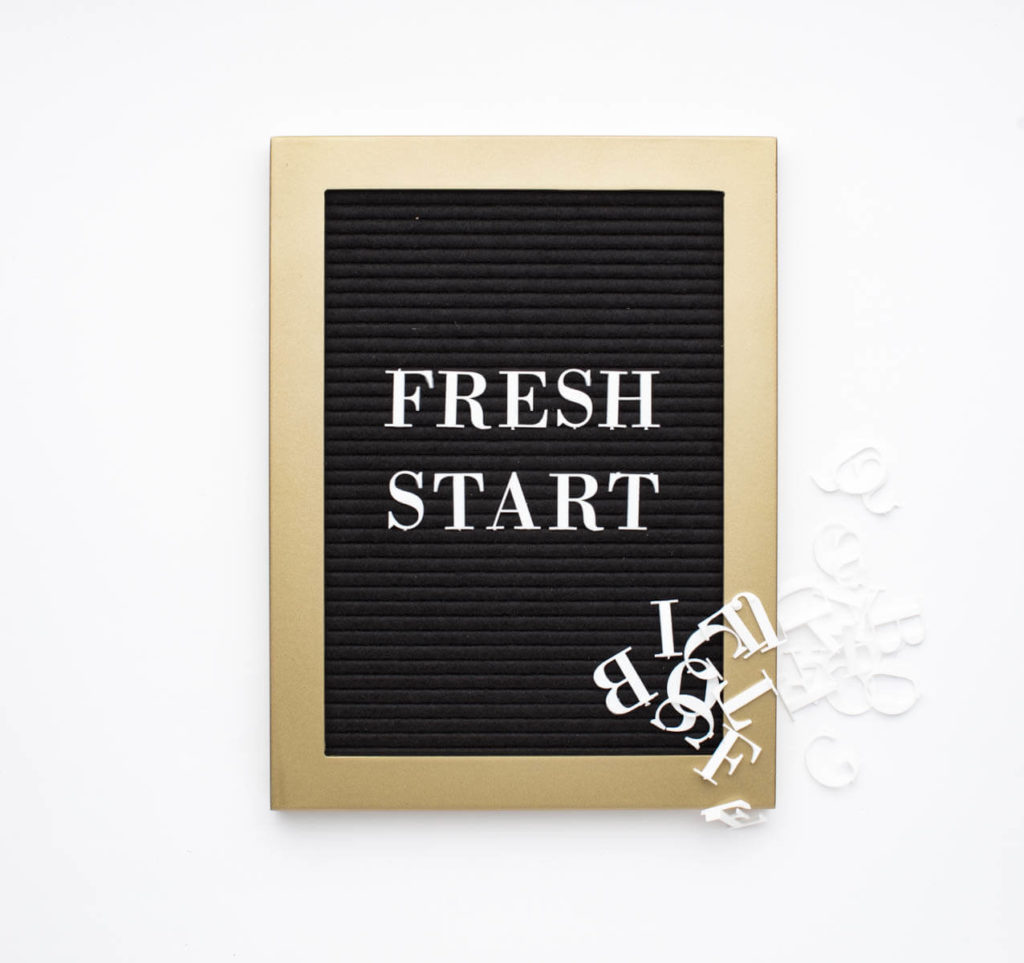
Happy New Year, friends! I hope the start of this new year has been treating you well. As we all know, the beginning of a new year is a time for setting goals and making positive changes in our lives. Whether we call them resolutions or intentions, setting goals can be a powerful way to motivate ourselves and create positive changes in our habits and routines.
But let’s be real – it can also be overwhelming to try and tackle too many goals at once. That’s why it’s so important to set realistic health goals for the new year. By being specific, measurable, achievable, relevant, and time-bound (SMART) with our goals, we increase our chances of success and avoid burnout.
And while setting goals is important, it’s just as important to focus on creating healthy habits that will support our long-term health and well-being. That’s where practices like Ayurveda and yoga can come in handy. Ayurveda, the ancient Indian system of medicine, can help us identify and address imbalances in our bodies, while yoga can help bring balance to our minds and bodies.
With that said, here are some tips on how to set achievable health goals for the new year based on Ayurvedic and yoga wisdom.

Setting Health Goals
As I mentioned earlier, using the SMART method can be a helpful way to set realistic and achievable health goals. Let’s break down each element of the SMART acronym:
- Specific: Be specific with your goals. Instead of saying “I want to eat healthier,” try something like “I will eat one serving of vegetables at each meal.”
- Measurable: Make sure your goals can be measured. This will help you track your progress and stay motivated.
- Achievable: Be realistic with your goals. If you’re not a runner, don’t set a goal to run a marathon by the end of the year. Start small and build up gradually.
- Relevant: Make sure your goals are relevant to your overall health and well-being. Don’t set a goal just because it’s trendy or because someone else is doing it.
- Time-bound: Give yourself a deadline for achieving your goals. This will help keep you on track and motivated.
In addition to using the SMART method, it can also be helpful to break down big goals into smaller, more manageable ones. For example, if your goal is to run a marathon, start by setting a goal to run a 5K, then work your way up to a 10K, and so on. By setting smaller goals along the way, you’ll be more likely to stay motivated and on track.
Finally, it’s important to find ways to stay motivated and on track with your goals. This can be as simple as finding a workout buddy or accountability partner, or setting reminders for yourself. Don’t be afraid to ask for help or support when you need it.

New Year Resolutions
While setting New Year’s resolutions can be a great way to motivate ourselves to make positive changes, it’s important to be mindful of the potential pitfalls. One common mistake is setting unrealistic or overly ambitious goals. This can lead to disappointment and a lack of motivation if we’re unable to achieve our goals.
That’s why it can be helpful to shift our mindset from “resolutions” to “intentions.” Instead of making a list of rigid goals that we feel we have to achieve, we can set intentions for the year ahead – things we hope to cultivate or focus on in the coming months. This can be a more flexible and forgiving approach, and it allows us to be more present and mindful in the present moment.
Here are a few ideas for healthy New Year’s intentions:
- Incorporate more self-care into your routine, such as setting aside time for relaxation or taking a warm bath before bed.
- Improve your diet by incorporating more whole, unprocessed foods and cutting back on sugar and refined grains.
- Get more sleep by setting a bedtime routine and creating a relaxing sleep environment.
- Practice mindfulness by setting aside time for meditation or mindful breathing each day.
- Get more physical activity by finding an exercise routine that you enjoy, such as walking, running, or yoga.
Remember, the key is to be kind to yourself and focus on making small, sustainable changes rather than trying to overhaul your entire life in one fell swoop.
Healthy Habits
One of the keys to achieving our health goals is to establish healthy habits that will support our long-term well-being. But let’s be real – creating and maintaining healthy habits can be challenging. That’s why it’s important to be patient with ourselves and recognize that change takes time.
Here are a few tips for creating and maintaining healthy habits:
- Start small. Rather than trying to make a bunch of big changes at once, focus on making one small change at a time.
- Set reminders. Whether it’s setting an alarm on your phone or leaving yourself a sticky note, setting reminders can help you stay on track with your habits.
- Find an accountability partner. Enlist the help of a friend or family member to help you stay motivated and on track with your habits.
- Be consistent. The more consistent you are with your habits, the more likely they are to stick.
Incorporating Ayurveda into your daily routine can also be a helpful way to create healthy habits that align with your unique constitution. By identifying and addressing imbalances in your body, you can create habits that support your overall health and well-being.

Exercise
Regular exercise is important for both physical and mental health. It can help improve our cardiovascular health, strengthen our muscles and bones, and boost our mood and energy levels. But finding an exercise routine that works for us can be a challenge.
Here are a few tips for finding an exercise routine that you’ll enjoy:
- Try different types of workouts. Whether it’s lifting weights, taking a yoga class, or going for a run, there are endless options to choose from. Don’t be afraid to try something new and see what works for you.
- Find a workout buddy. Having someone to exercise with can make the experience more fun and keep you motivated.
- Make it convenient. Find a form of exercise that is convenient and accessible, whether it’s a gym near your home or an online workout video that you can do at home.
- Have fun. Exercise doesn’t have to be a chore. Find something you enjoy and have fun with it.
Incorporating yoga into your exercise routine can also be a great way to bring balance to your mind and body. Yoga can help improve flexibility, strength, and stress management – all important factors in overall health and well-being.
Diet
Eating a healthy diet is important for our overall well-being. It can help us maintain a healthy weight, boost our energy levels, and support our immune system. But navigating the world of healthy eating can be overwhelming, with so many conflicting opinions about what to eat and what to avoid.
Here are a few tips for making healthier food choices:
- Incorporate more whole, unprocessed foods. Focus on eating more fruits and vegetables, whole grains, and lean proteins.
- Cut back on added sugars and refined grains. These types of foods can contribute to weight gain and other health issues.
- Plan ahead. Meal planning and packing healthy lunches and snacks can help you stay on track and avoid making unhealthy choices when you’re short on time.
- Experiment with plant-based options. Incorporating more plant-based protein sources, such as beans and lentils, can be a healthy and delicious way to add variety to your diet.
Using the principles of Ayurveda can also be a helpful way to identify and address imbalances in your diet. Ayurveda can help you understand your unique constitution and what types of foods and eating habits will best support your health.
Mental Health
Improving our mental health is an important aspect of overall wellness. It’s important to take care of our minds just as we do our bodies. But it’s not always easy to know where to start or how to seek help when we’re struggling.
Here are a few ideas for improving your mental health:
- Practice mindfulness. Whether it’s through meditation, mindful breathing, or simply being present in the moment, mindfulness can help reduce stress and improve overall well-being.
- Seek therapy. If you’re struggling with mental health issues, seeking the help of a mental health professional can be incredibly beneficial.
- Incorporate self-care practices. Taking care of yourself, whether it’s through exercise, relaxation techniques, or simply setting aside time for yourself, can help improve your mental health.
Incorporating yoga and meditation into your routine can also be a powerful tool for improving mental health. These practices can help reduce stress and improve overall well-being.

Now that you have some ideas for setting realistic health goals for the new year, it’s time to put them into action! One helpful way to get started is to track your progress and stay accountable. That’s why I’m excited to offer a free habit tracker that includes Ayurvedic dinacharya habits.
Dinacharya is the daily routine prescribed in Ayurveda that includes daily self-care practices like oil pulling and tongue scraping, as well as habits related to sleep, diet, and exercise. By incorporating these practices into your daily routine, you can support your overall health and well-being.
If you’re ready to get started on creating healthy habits and reaching your health goals, sign up for my free habit tracker below. It’s the perfect tool to help you stay motivated and on track in the new year.
[…] is the power of goal setting – an essential aspect of holistic wellness coaching that fosters harmony between mind, body, […]
[…] that stress can serve an essential purpose. In small, manageable doses, stress can motivate us to achieve our goals, sharpen our focus, and heighten our efficiency. However, when stress becomes a relentless force, […]